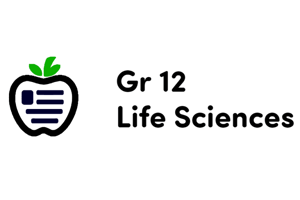Podcast
Questions and Answers
Which type of regulation involves a self-adjusting mechanism to maintain stability, balance, or equilibrium within a cell or the body?
Which type of regulation involves a self-adjusting mechanism to maintain stability, balance, or equilibrium within a cell or the body?
- Negative feedback regulation (correct)
- Positive feedback regulation
- Enzymatic regulation
- Chemical regulation
What type of regulation involves the release of hormones into the blood controlled by a stimulus?
What type of regulation involves the release of hormones into the blood controlled by a stimulus?
- Chemical regulation
- Positive feedback regulation
- Enzymatic regulation
- Negative feedback regulation (correct)
Which mechanism of regulation involves continuous adjustments to meet the 'Set Point'?
Which mechanism of regulation involves continuous adjustments to meet the 'Set Point'?
- Enzymatic regulation
- Chemical regulation
- Positive feedback regulation
- Negative feedback regulation (correct)
What type of regulation requires adjustments of conditions when changes occur inside and outside the system?
What type of regulation requires adjustments of conditions when changes occur inside and outside the system?
Which type of regulation involves stability, balance, or equilibrium within a cell or the body?
Which type of regulation involves stability, balance, or equilibrium within a cell or the body?
Which of the following is an example of positive feedback regulation in biological systems?
Which of the following is an example of positive feedback regulation in biological systems?
In osmoregulation, what happens when [solutes] increases above normal in the extracellular fluid?
In osmoregulation, what happens when [solutes] increases above normal in the extracellular fluid?
What is the most common feedback loop in the biological system and acts to reverse the direction of change to maintain the set point?
What is the most common feedback loop in the biological system and acts to reverse the direction of change to maintain the set point?
What ensures a balance of water and solutes across cell membranes for optimal functioning of biochemical processes?
What ensures a balance of water and solutes across cell membranes for optimal functioning of biochemical processes?
Which condition will result in the death of cells during osmoregulation?
Which condition will result in the death of cells during osmoregulation?
Flashcards
Negative feedback regulation
Negative feedback regulation
A self-adjusting mechanism to maintain stability, balance, or equilibrium within a cell or the body.
Hormone Release via Negative Feedback
Hormone Release via Negative Feedback
Regulation method where hormone release into the blood is controlled by a stimulus to maintain balance.
Regulation via Set Point
Regulation via Set Point
Regulation achieved via ongoing adjustments to stay near a target value to correct deviations.
Regulation and external balance
Regulation and external balance
Signup and view all the flashcards
Lactation example
Lactation example
Signup and view all the flashcards
Osmosis Purpose
Osmosis Purpose
Signup and view all the flashcards
High Extracellular Solutes
High Extracellular Solutes
Signup and view all the flashcards
Negative Feedback Loop
Negative Feedback Loop
Signup and view all the flashcards
Low Extracellular Solutes
Low Extracellular Solutes
Signup and view all the flashcards
Study Notes
Types of Biological Regulation
- Intrinsic Regulation: A self-adjusting mechanism maintaining stability within a cell or the body. This involves internal feedback loops.
- Extrinsic Regulation: Involves the release of hormones into the blood, triggered by a stimulus. This is often a hormonal or neural response.
- Negative Feedback: Continuous adjustments maintain a ‘set point.’ This reverses the direction of change to maintain stability.
- Open System Regulation: Requires adjustments to internal and external changes. This is adaptive and responds to environmental factors.
Feedback Mechanisms and Osmoregulation
- Positive Feedback: Amplifies the initial stimulus, leading to a rapid and significant change. Examples include childbirth and blood clotting.
- Osmoregulation Response to Increased Extracellular Solutes: When extracellular solute concentration rises, water moves out of cells by osmosis, causing cell shrinkage and potentially death.
- Negative Feedback Loops: The most common biological feedback loop, reversing the initial change to restore equilibrium. This maintains homeostasis.
- Homeostasis: Maintaining a balance of water and solutes across cell membranes. This is crucial for proper cellular function.
- Cell Death in Osmoregulation: Extreme changes in solute concentration (hypertonicity or hypotonicity) can lead to cell death through lysis or crenation.
Studying That Suits You
Use AI to generate personalized quizzes and flashcards to suit your learning preferences.




